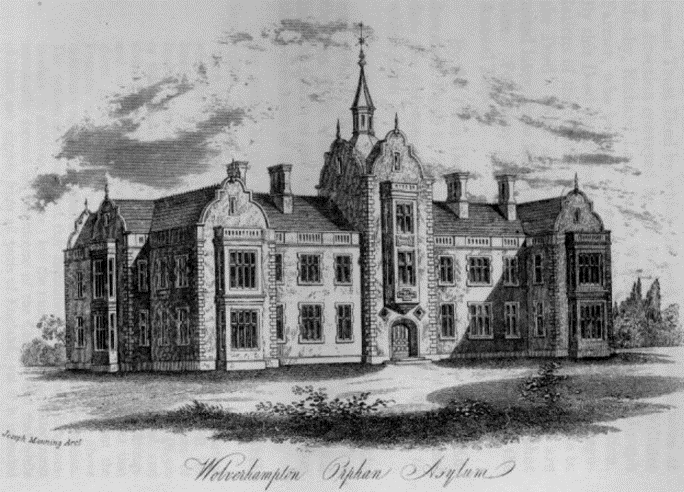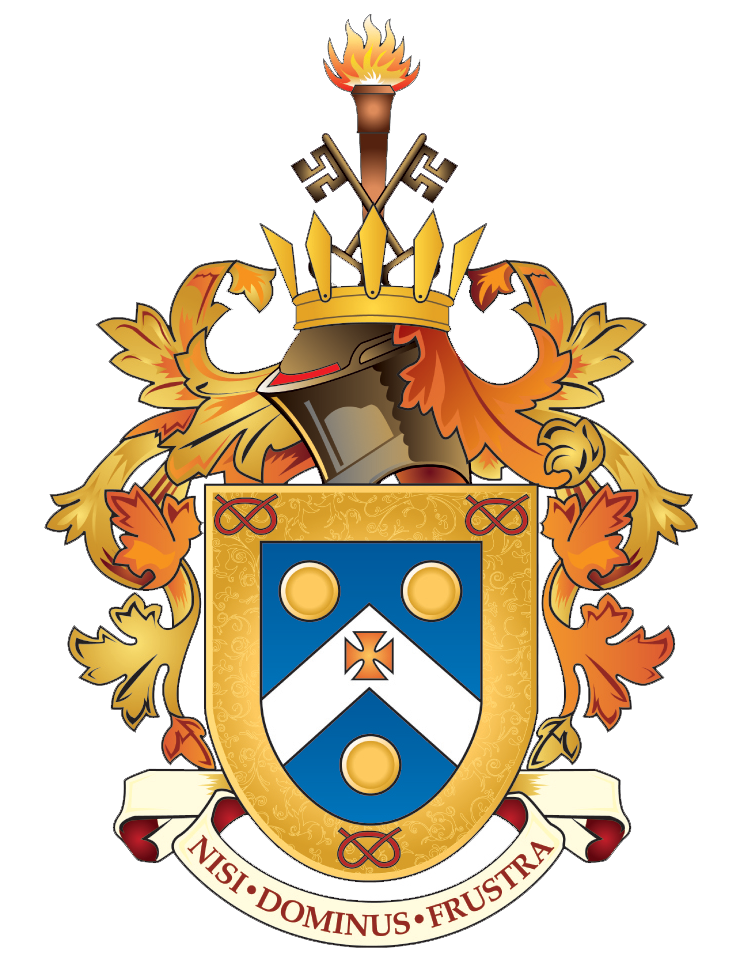Our Evolving Role


 The role of the Charity, the Royal Wolverhampton School Foundation, has evolved over the centuries.
The role of the Charity, the Royal Wolverhampton School Foundation, has evolved over the centuries.
Providing a safe home for "cholera orphans"
It began in 1850 as The Wolverhampton Orphan Asylum, when a local merchant John Lees created a home for children orphaned by a local cholera epidemic the year before.
He quickly realised the need was not just to react compassionately to a local cholera catastrophe. A great many more children were being made destitute or orphaned every day in dangerous Black Country foundries and metal-working factories.
Including orphans from Black Country industries
Having failed to persuade eminent schools in the area to work with him to create a larger orphanage, he and some friends committed to building a large orphanage (see drawing above) on Goldthorn Hill in Wolverhampton. He was a determined man with enormous vision.
He enlisted friends to help run and generate funds to realise this vision. They could not fund it all themselves and sought public donations from like-minded people across the country. Every few months, they published details of children who could be admitted to the new orphanage if enough people "voted" for them. The amount that individuals, companies, and organisations including Freemasons lodges, donated determined the number of votes each would have. The child (or children if there was enough space) with the highest number of votes was "elected" and became a "Foundationer" in the orphanage. A large donation could be sufficient to pay for a single child to be elected. Often wealthy people donated an amount to fund a bed in perpetuity. Such beds had a plaque at their feet acknowledging the donation. Examples can be seen in Queen Victoria Hall in the Senior School. A major fund-raising activity was Whist Drives, run by the wives of wealthy men, which raised money for this orphanage and a few similar ones that had garnered country-wide recognition.
It gained the “Royal” accolade in 1900 in recognition of its outstanding work and national reputation.

Becoming a voluntary-supported school
In 1922 the boys' Senior School became an officially recognised Efficient Secondary School with the girls school following suit in 1927. A Junior School was opened in 1932 so now boys and girls could attend from 5 to 18 years of age.
The emphasis changed from providing a home and an education that, in general, would fit the boys for work in an office or other respectable employment and the girls to go into service or retail businesses, to one with a stronger emphasis on academic learning. To become a school it had to pass an external inspection - an earlier version of Ofsted.
Until the 1944 Education Act it continued as an orphanage with boys and girls as ‘Foundationers’. The 1944 Act meant that Secondary Education would be funded by the State. This, and increases in Welfare State benefits challenged the continuing need for orphanages. By 1961, orphan applications had fallen greatly, especially girls, and the financial situation was grave.
Admitting fee-paying pupils alongside Foundationers
A new Constitution was agreed which saw the end of the School as an orphanage only. The main aim was to preserve the traditional role of the Foundation and make the entire School financially viable. Fee paying boarders & day pupils were admitted alongside boarding Foundationers and the Senior Girls School reluctantly closed. By 1967 the School had increased to over 400 pupils, from all parts of the United Kingdom and overseas. About a third were Foundationers.
It offered places to fee-paying pupils while maintaining the ability to provide bursaries to orphans and later to destitute children with one parent. As competition for fee-paying pupils grew harder, the school extended its catchment area, being amongst the first to attract Hong Kong and Chinese children. Over this period the number of pupils varied but by 2016 it educated and cared for just under 400 pupils.
Closing the independent school which converted to a larger Free School
It owned the fee-paying day and boarding school for boys and girls which closed on 31st August 2016 and immediately reopened on 1st September as a Free School (legally, an Academy) with a slightly revised name: The Royal School Wolverhampton.
The Cabinet Office, actively supported by the school's patron, HRH The Duke of Edinburgh, allowed the new Free School to include "Royal" in its name and the Charity to continue to use “Royal” in its name. “Foundation” was added to the Charity’s name to clarify its purpose and differentiate it from the Free School.
Finally becoming an independent charity focused on supporting the Royal School Wolverhampton & its pupils
In many ways the Foundation’s role has come full circle back to that of the orphanage: it has moved from providing a home and education for young people in need, to providing necessary funding for young people in need - often by funding a home in boarding accommodation.
As a State-funded school there is no fee for attending, but its pupils demonstrate the type of all-through education that the School offers clearly ensures its students rival any in the country.
Now, more than ever, the Charity needs your support to enable us to help the school continue delivering the very best all-round education!
The Charity has always relied on the generosity and goodwill of Old Royals and Old Rowans, former staff, parents and its many “friends”. Their commitment helps support the facilities and opportunities the school can offer to all students, regardless of their means or background.
For more than 170 years, the kindness of donors has helped fund the development and maintenance of a unique organisation and your donations now will mean the Foundation can continue to support it.
Our role now is to provide financial support to pupils at the School who are in significant need but unable to access sufficient funding to meet that need. Typically, we help fund a period in Boarding for individual pupils knowing this will materially help them achieve their full potential, academically, and as people we are proud to know. We also support infrastructure projects, not funded by the State, that will benefit all attending the school.
Thank you so much to all the generous donors who have made the impact of the Foundation possible!

